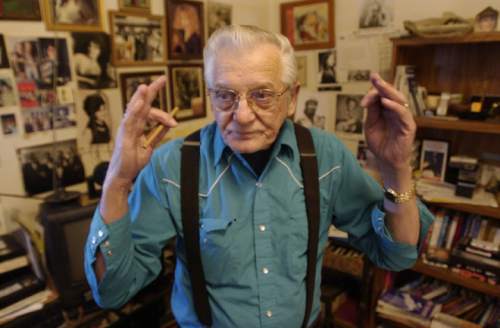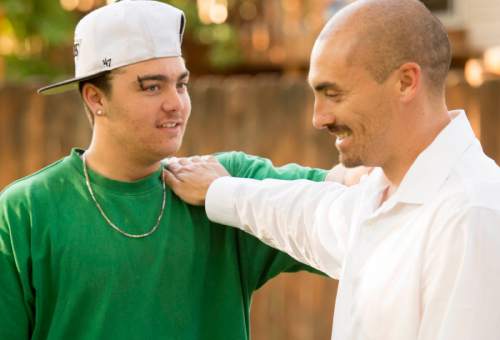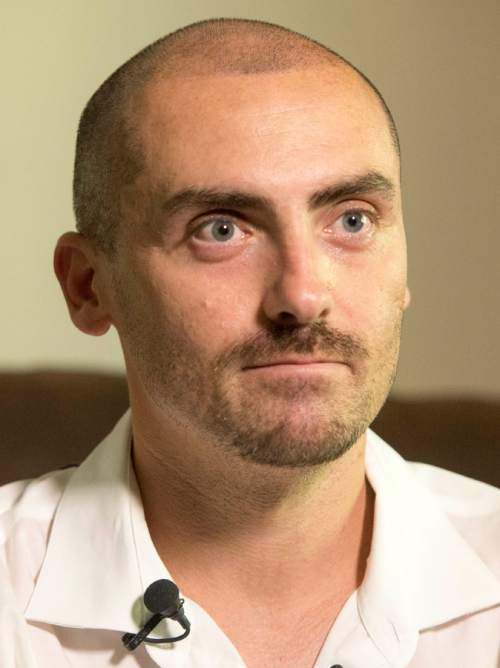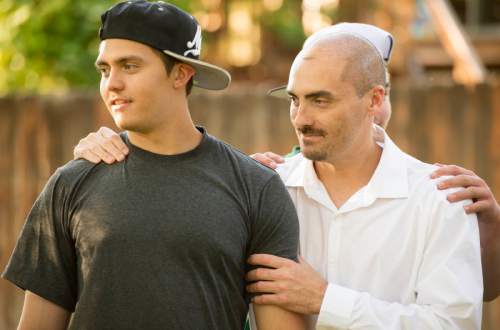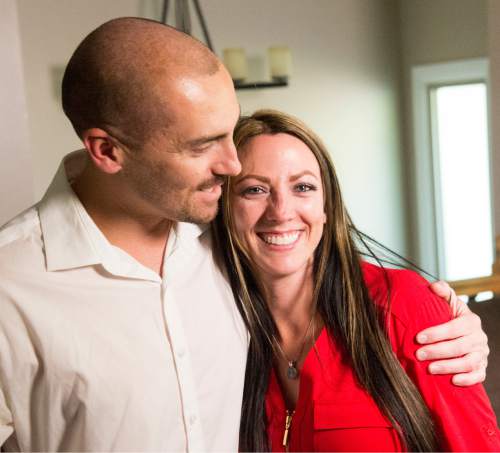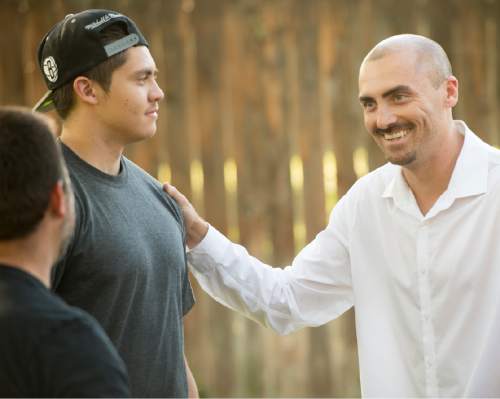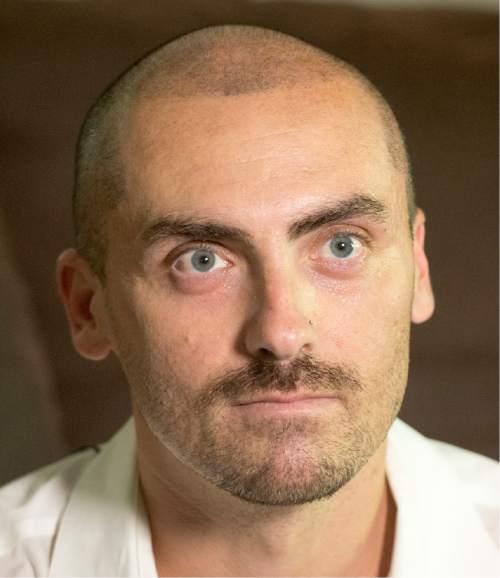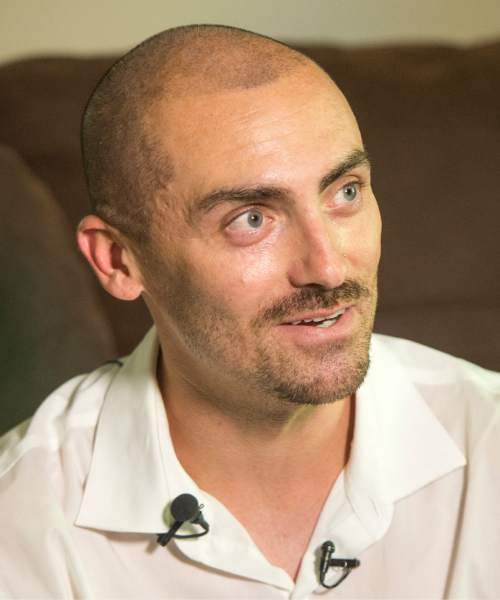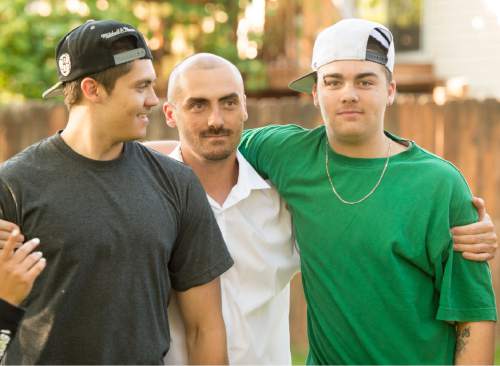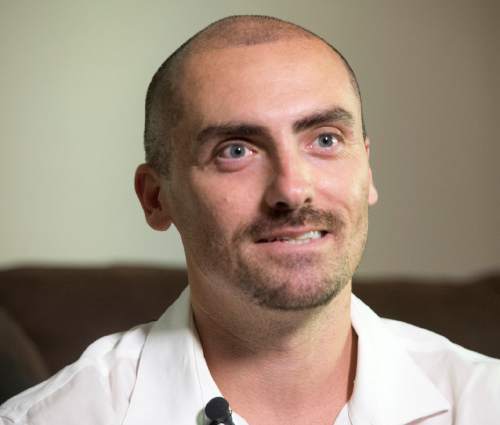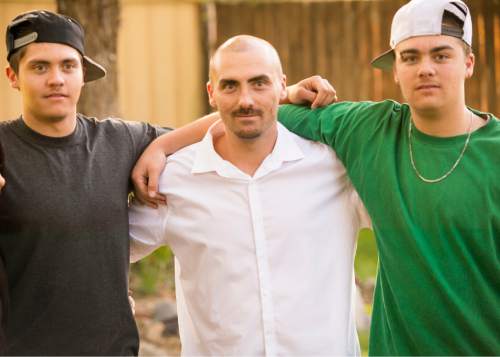This is an archived article that was published on sltrib.com in 2016, and information in the article may be outdated. It is provided only for personal research purposes and may not be reprinted.
Sandy • Weldon Angelos, a Utah music producer whose mandatory term of 55 years in prison on federal gun and drug charges caused a national furor, is a free man now.
The first-time offender — who ended up behind bars for selling marijuana to a police informant on three occasions, once when he had a gun strapped to his ankle and two times when a gun was present in the vicinity — was released from custody Tuesday after being given an immediate reduction in his sentence.
Although Angelos believed a nationwide campaign to win his earlier release by a wide breadth of supporters — including family members, politicians, attorneys, law professors, former prosecutors and others — would ultimately be successful, he was still surprised.
"I was excited," Angelos said Friday at his sister's Sandy home. "I was shocked. It was amazing. I'm still stunned at all the support I received."
The 36-year-old said he had kept his release quiet at first because he needed time with his family before the news spread. His sons were small children when he went to prison, and his daughter was an infant; now they're 19, 17 and 13.
His sister Lisa Angelos said she thought it was a joke when she first heard her brother was getting out of prison.
"It didn't feel real," she said.
She added that she feels a little bit of bitterness that the release came too late for their father, James Angelos, who died last year.
"That was his one wish, to see Weldon one more time," Lisa Angelos said.
The details of how Angelos came to be released early were not available because those records are sealed.
However, Mark Osler, a Minnesota attorney who represents Angelos, told The Washington Post that his client is free "because of the fair and good action of a prosecutor."
The U.S. Attorneys Office for Utah, which prosecuted the case, could not be reached Friday for comment.
Angelos, then 22, was accused of selling marijuana to a police informant three times in May and June 2002, each time charging $350 for 8 ounces. He was indicted in federal court on one gun possession count, three counts of marijuana distribution and two lesser charges.
Prosecutors said Angelos, the founder of Utah hip-hop label Extravagant Records, was a gang member and drug dealer. He denied those accusations and declined a plea bargain offered by prosecutors that would have put him behind bars for 15 years.
The U.S. Attorney's Office called the offer that Angelos rejected a "huge break," then obtained a new indictment with 20 counts that mandated a minimum 105-year sentence.
A jury convicted Angelos in 2003 of 16 counts of drug trafficking, weapons possession and money laundering. One charge was dismissed, and the jury acquitted Angelos of three other charges.
In 2004, then-U.S. District Judge Paul Cassell reluctantly imposed the minimum mandatory term of 55 years for the weapons-related convictions, then added one day for the 13 other counts.
There is no parole in the federal system, which means offenders serve their entire sentences, minus any "good time" credit of up to about 50 days a year they earn for their behavior in prison. Angelos had an estimated release date of Nov. 18, 2051, when he would be 72, according to records from the Bureau of Prisons.
Cassell said federal mandatory-minimum-sentencing laws left him no choice but to impose what he called the "unjust and cruel and even irrational" prison term. At that time, he urged Congress to modify the mandatory minimum law.
Now a law professor at the University of Utah, Cassell has called that sentencing decision "one of the most troubling that I ever faced in my five years on the federal bench." He said Friday that Angelos' sentence reduction was an unusual fix for a problem that's occurring around the country and that Congress needs to pass comprehensive reform.
On Friday, Cassell again said Congress needs to pass comprehensive reform, saying that "it's a basic axiom of criminal justice that the punishment needs to fit the crime."
Twitter: @PamelaMansonSLC


